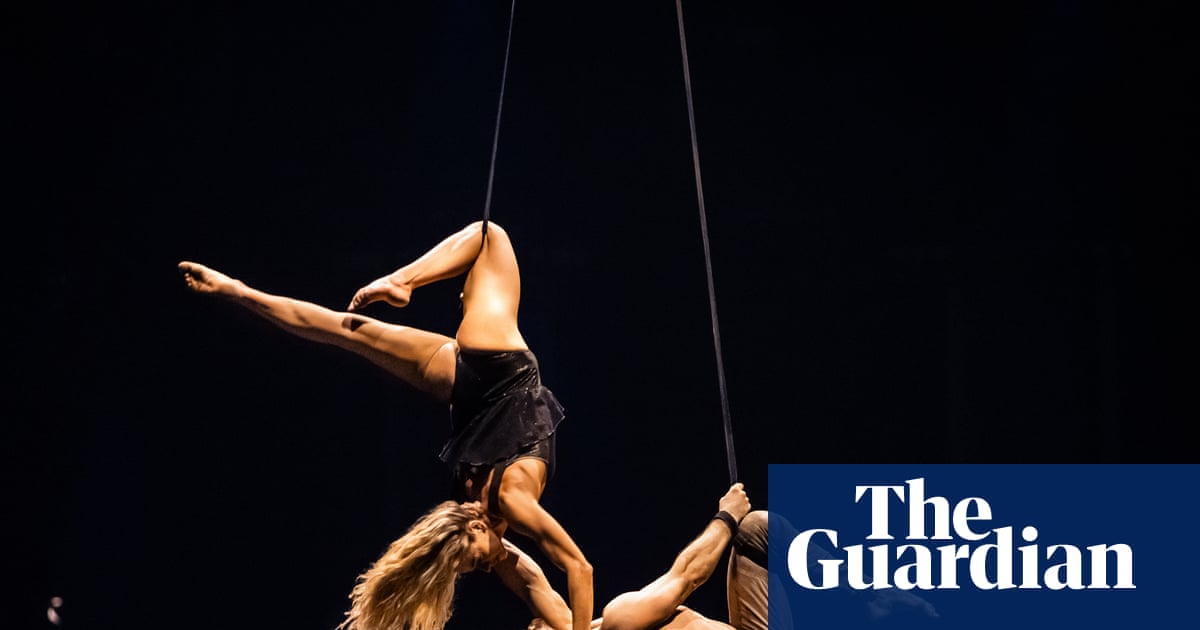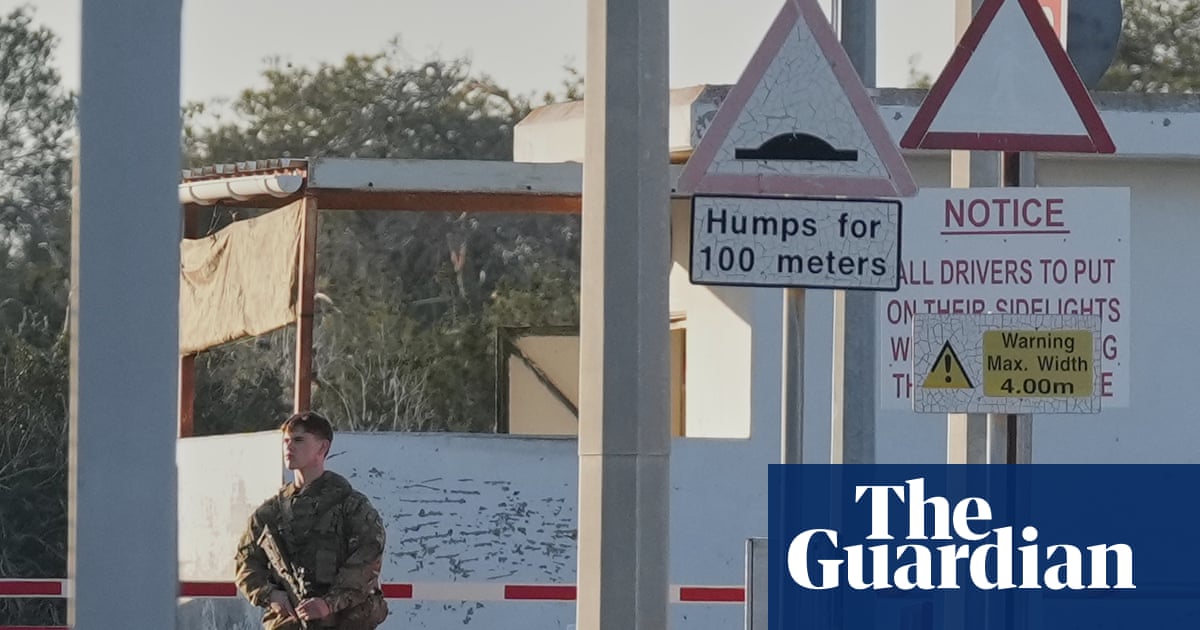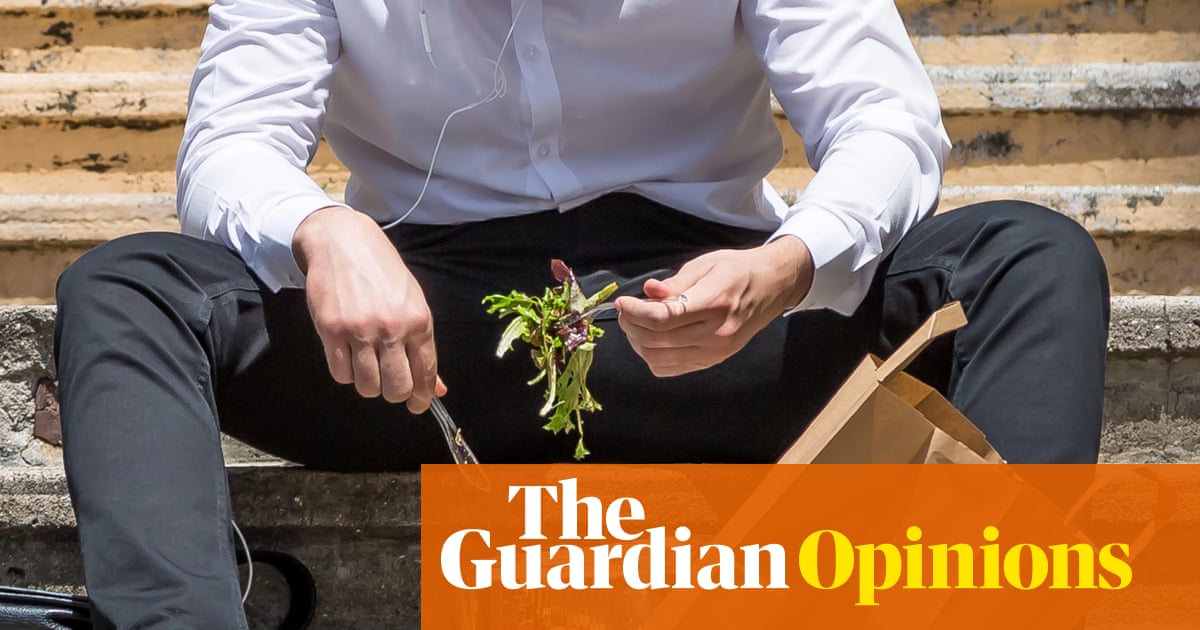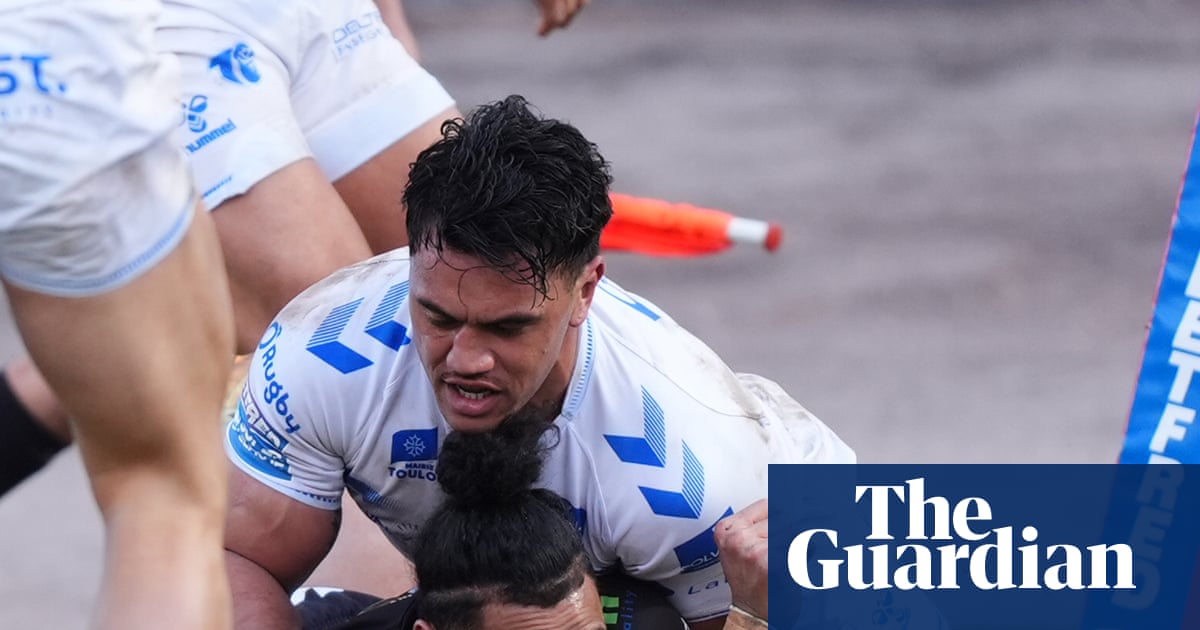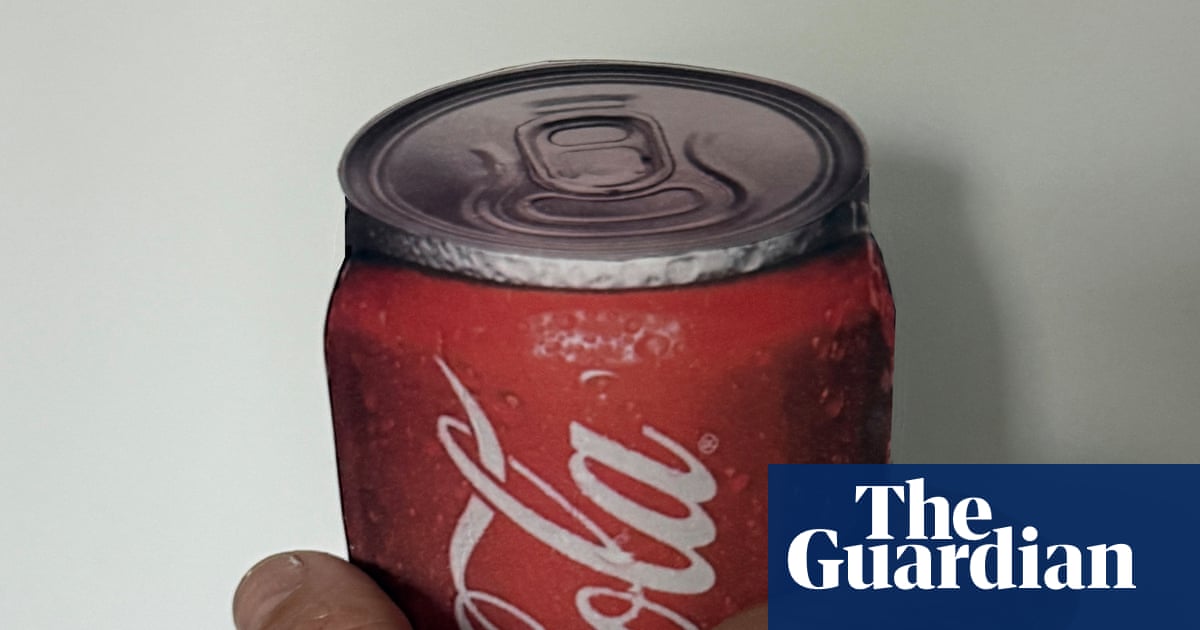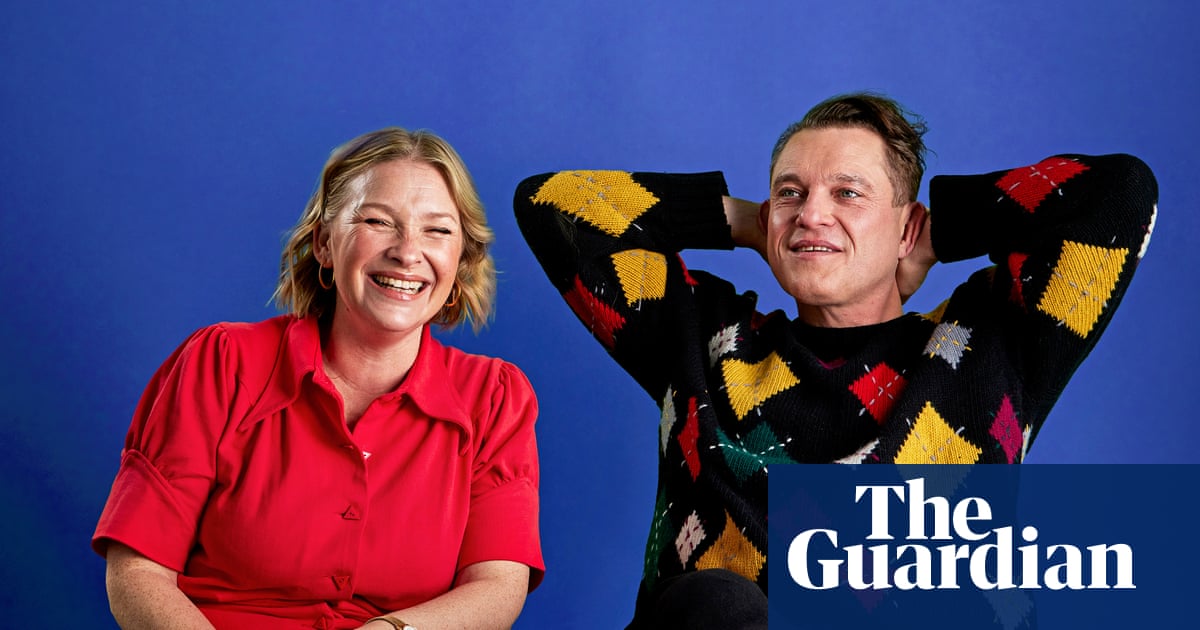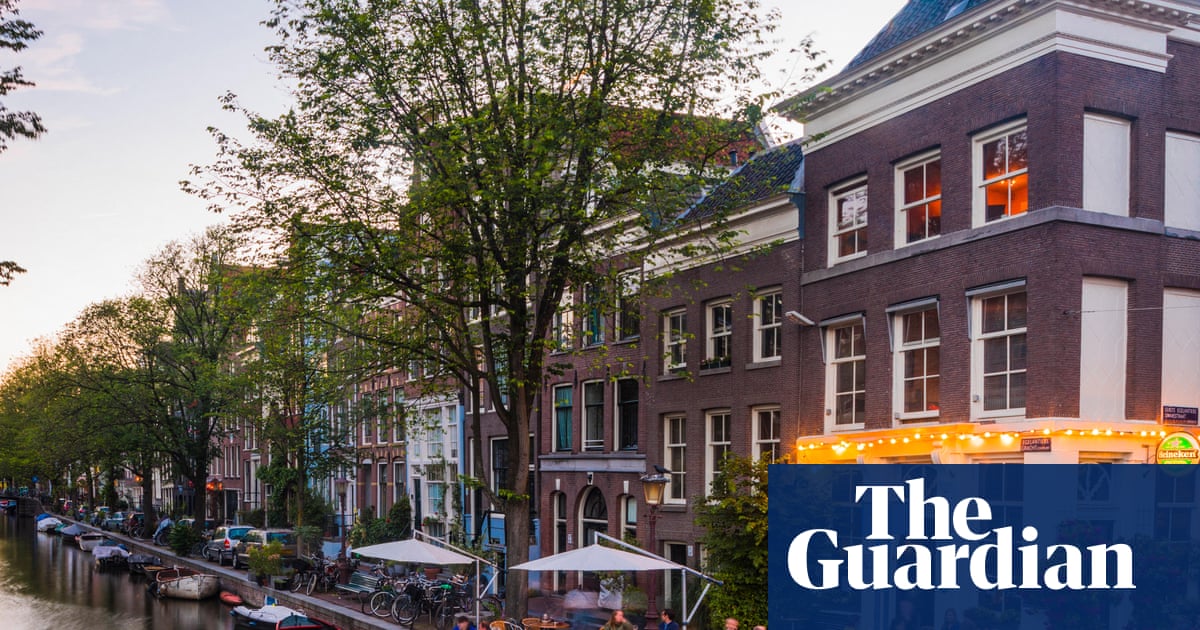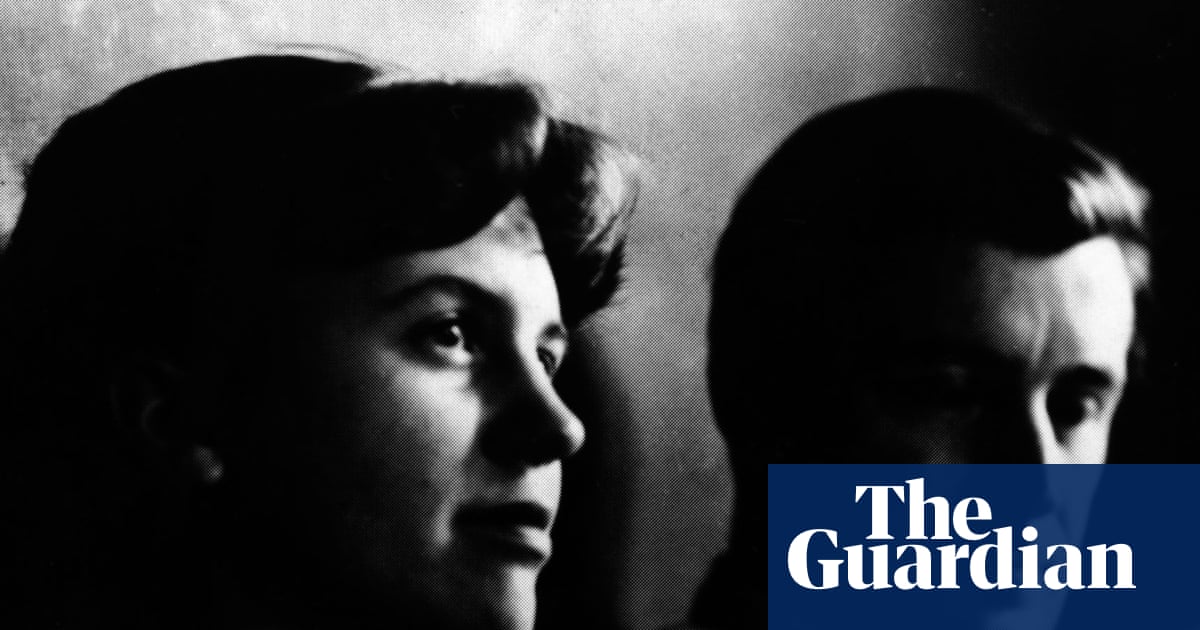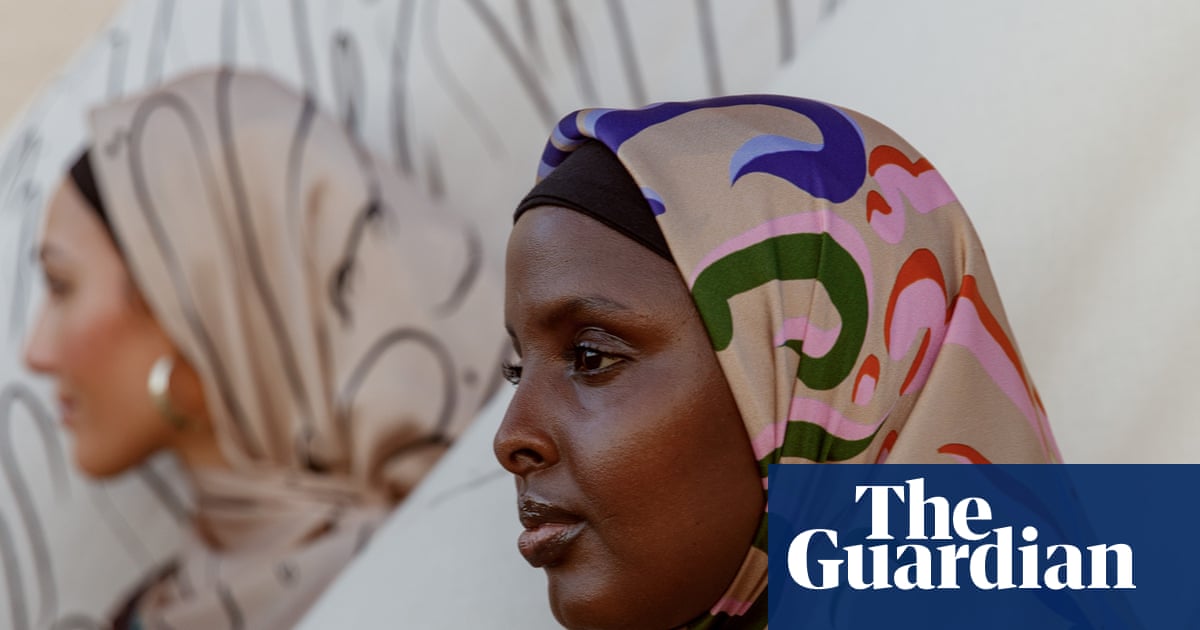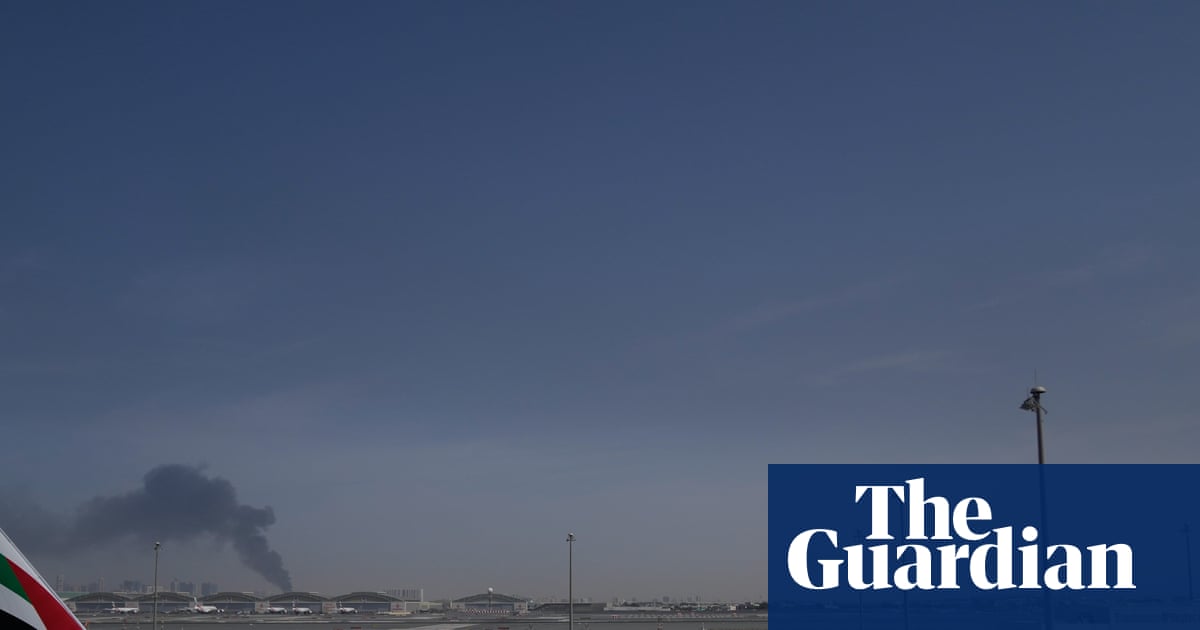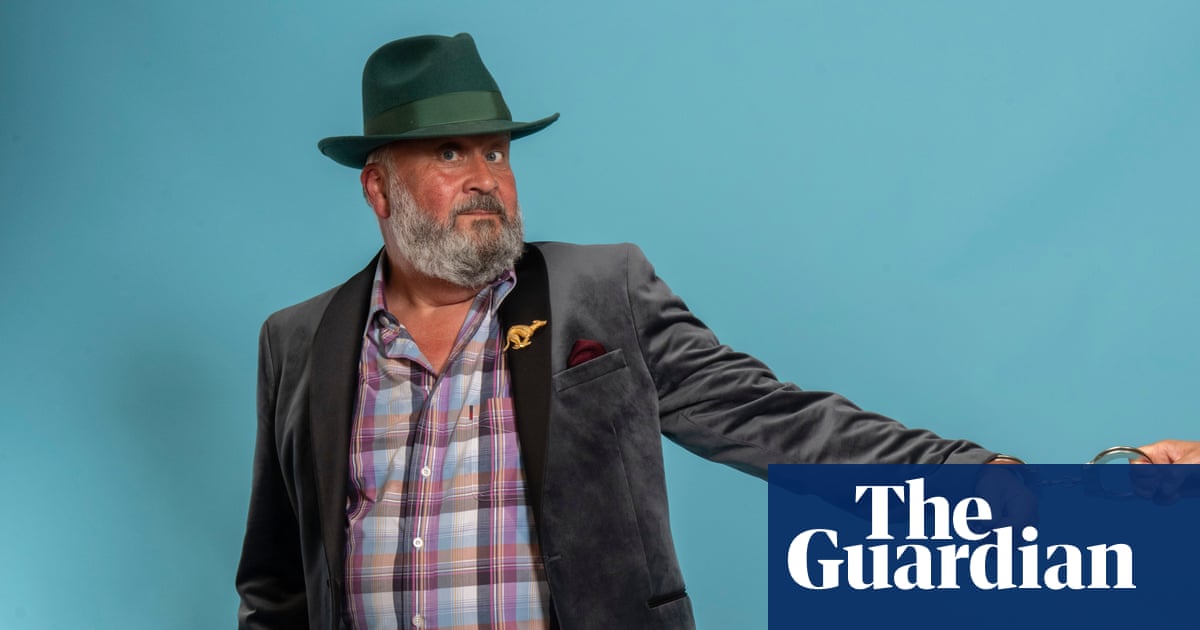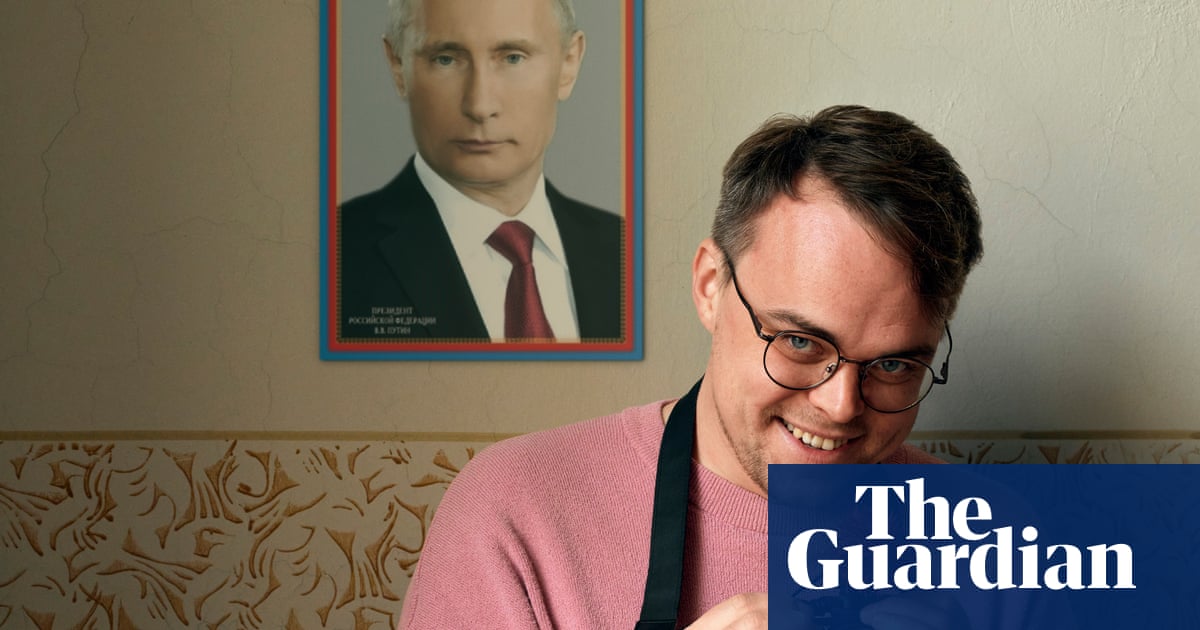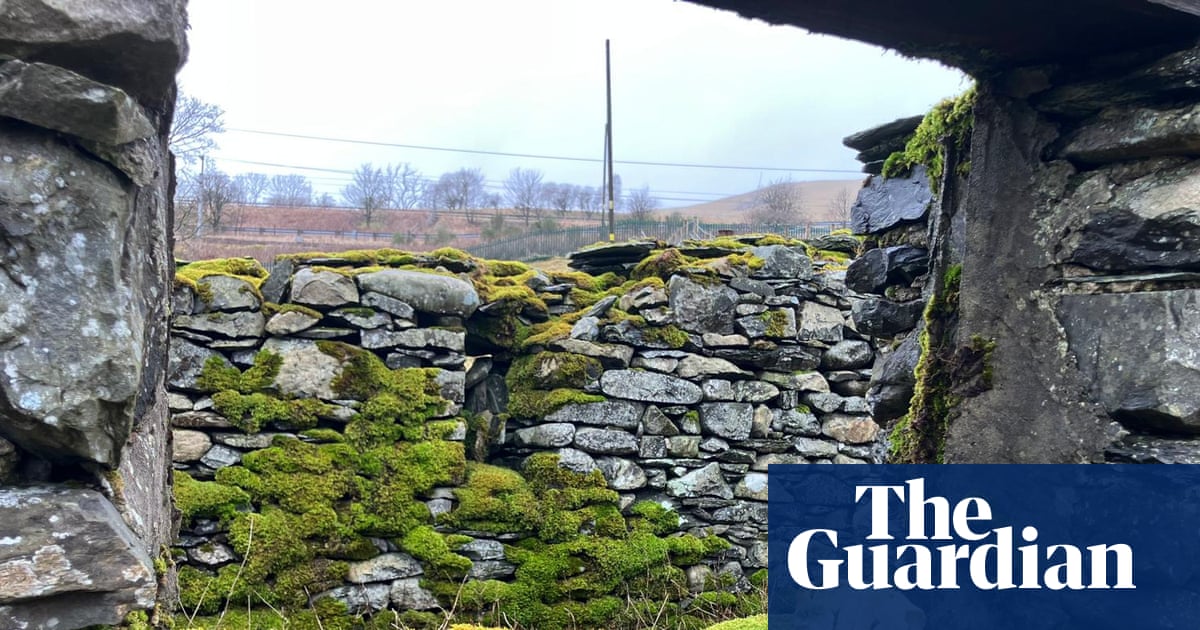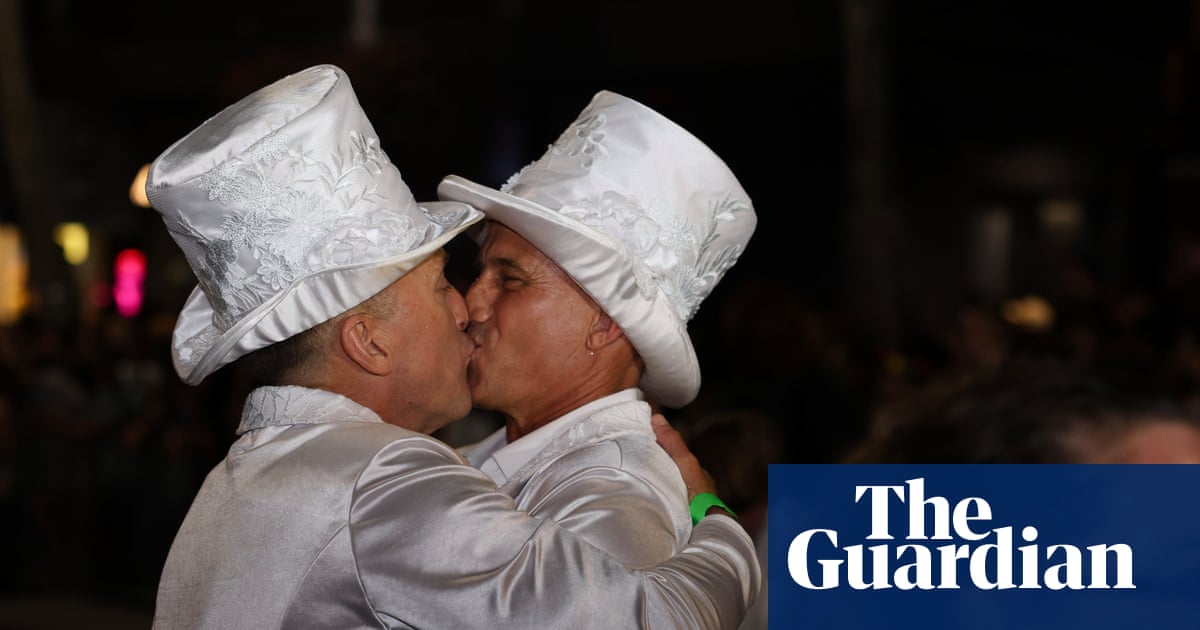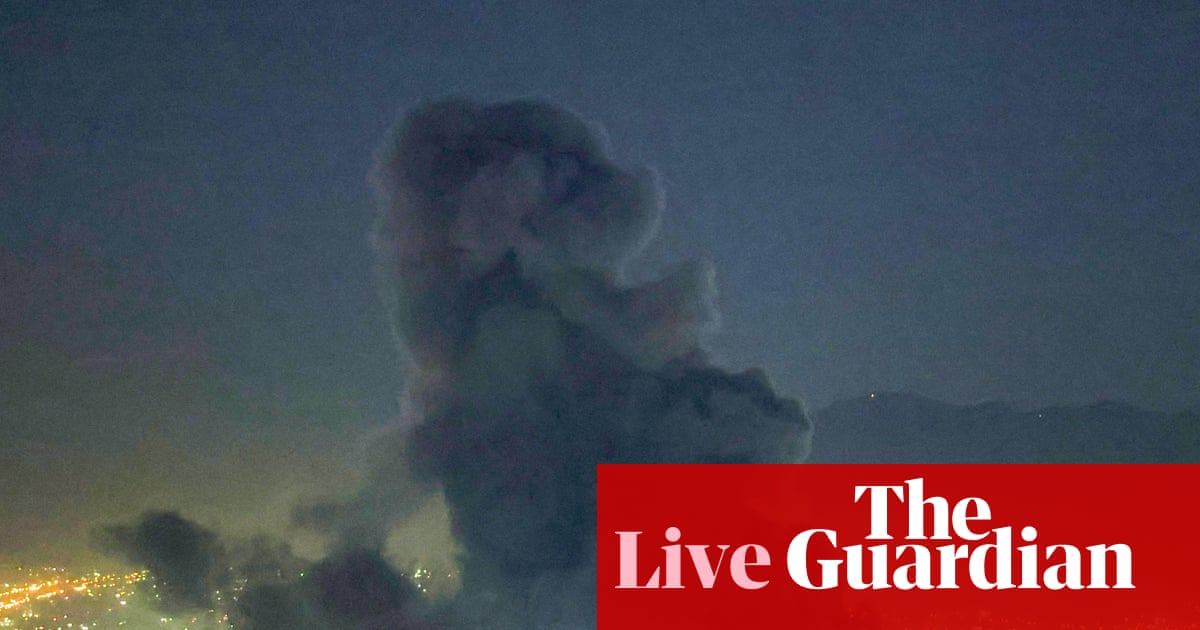“Jesus Christ! All I want to do is get you in a straight bloody line. What do I have to do?” Gerald asks. So Horse says: “It’s the Arsenal offside trap, isn’t it?” Lomper here becomes Tony Adams, and Cristhian Mosquera starts to laugh.
The Spain Under-21 international is sitting at a table in the team hotel in Lugo, Galicia. Through the window, the sound of rain falling; in front of him, the famous scene from The Full Monty, cinematic representation of a defence so perfect, so instantly identifiable it became part of popular culture; a backline never to be bettered. Until now?
Last Saturday, something strange happened: Arsenal let in a goal. In fact, they let in two. “If you’ve gone loads of games without anyone scoring, when they do it’s like it [hurts] more,” Mosquera says. “But the other team plays too and it’s hard to keep that statistic going.”
Until Brian Brobbey’s 94-minute equaliser for Sunderland, Arsenal had won eight consecutive games, keeping a clean sheet in all of them. Thirteen and a half hours had passed, like something from another time, something else for their new centre-back to embrace.
“I didn’t know Arsenal had that identity in the 1980s and 1990s but I like that, yeah,” Mosquera says. “It’s good and you see that now as well: a team that’s like a rock, that’s making it very hard for opponents. To win games you have to generate danger too, your forwards need chances. The key is balance: it’s not just defending, and that’s not just the defenders. But people talk about the defensive part because of the stats, and it is fundamental teams don’t score against us. And the numbers are crazy.”
His numbers too. Starting with the fee: £13m which, he says, “you never really contemplate but when you stop to think about, is actual money, a lot of money”. David Gordo, Mosquera’s under-21 coach, calls it a bargain. While he is biased, in north London everyone agrees.
If Mosquera was signed from Valencia as backup or for the future, an unknown unlikely to play, it hasn’t shown. He is the embodiment of the strength in depth Mikel Arteta prioritised, and much as he insists “I won’t get desperate; I’m calm, I can wait for my time”, he has made 12 appearances. In his 10 hours on the pitch, Arsenal have conceded three.
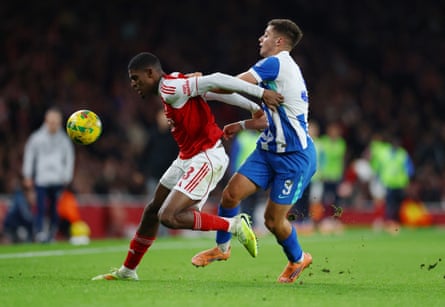
“Lots of people didn’t know me, hadn’t really seen me,” Mosquera says. “I don’t know about the money, about ‘bargains’, and I don’t look at social media, but it’s true that things reach you and I’ve heard quite a lot about it being a good deal. The people around you, at the club too, say: ‘Listen, they’re very happy with you.’ And that’s what it’s about: coming here and leaving a mark.”
It started at Anfield in August. Mosquera replaced William Saliba after five minutes, and although Arsenal lost 1-0 to an astonishing late Dominik Szoboszlai free-kick, he was flawless. Above all, he was fearless; listening to him, he genuinely doesn’t seem to get the fuss. “That’s something that people ask a lot: ‘Don’t you get nervous in front of so many people?’ I always say no. I’ve never had those nerves, butterflies. It’s not easy to manage your head in that situation but that’s a quality I have: to be calm, relaxed. That’s what you saw that day. The manager just said to be myself.”
Mosquera has always been cool. He is eloquent and engaging, in no hurry. Easy company, he is not only interesting but interested, as happy listening as talking. “As a kid, I was very, very calm. Most kids want to go round to their mates’ houses but, I don’t know why, I wasn’t really drawn to that. I have my little brother now. He plays too. [Yulian, 14, is in Valencia’s academy]. He’s more lively, I’m still the calm one.
“My parents came from Colombia in the early 2000s. It’s funny; the question always comes up: ‘Which do you love more?’ But I don’t think it’s hard to have two cultures, both identities. I feel satisfaction at being a symbol of a new [Spain], a new generation. My family in Colombia are super proud and I try to be an example. My mum and dad came looking for work, stability. There were more opportunities then but they were young, came with family, and it wasn’t easy. My dad would do what he could: a month on a building site, wash dishes in a restaurant. Mum would clean houses.”
Mosquera, meanwhile, played. Born in Alicante, first it was basketball. Then a cousin got him to play for his fútbol sala team: “I would be about five and I played all over the place, but I’ve always been the tallest and I think that played a part in coaches putting me in defence.” Seen by Hércules first, he soon joined Valencia’s academy, leaving for their residency 160km up the coast, then making his debut at 17. ‘My parents sacrificed a lot and I feel I made sacrifices too, leaving home at 12,” he says. “It’s mad really. When you see a kid who’s 11, 12 and big clubs want them, my mum and I talk about it. Those aren’t easy decisions but that brought me where I am.
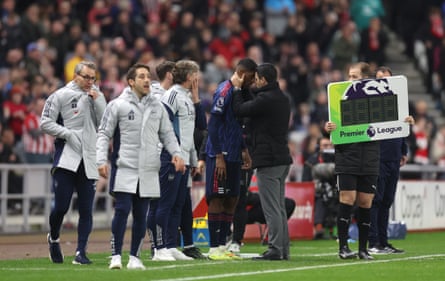
“My mum said that if it was up to her, I wouldn’t have gone. For a ‘normal’ person, the idea wouldn’t enter your head: 11, 12, without your parents. And you don’t know if you’ll make it. From my generation, there aren’t many. But there’s a good part too because they look after you, you learn a lot, grow up fast. It could be too fast. That’s good or bad, depending how you look at it. But in the end, I say: I lived it, I had that privilege. I understand it’s not easy but you mature, it teaches you about life. If I had children I’d support them following the same path.”
Mosquera’s path took him to London, a month after his 21st birthday. “I always watched the Premier League,” he says. “In fact, my team was Arsenal. The players, the shirt. I saw them as a bit different: they had something, an aura. Before I had decided, someone in my camp said: ‘The moment you speak to Mikel, there’s no way he won’t convince you.’ And that’s exactly how it happened. When the call finished, my destination couldn’t have been clearer.”
So is Arteta as intense as he looks? Mosquera smiles. “Yes, totally, totally. He really lives for football, he was raised on it, experienced everything. You see that when he talks. He loves the detail, sees things other eyes might not. I’m so happy with him. He’s an incredible person and he’s helping me a lot. The staff have made it easy. Arsenal is an incredible club.”
The opportunities came faster than anticipated; the adaptation was swift too. “I’ve settled super fast, which I didn’t expect before I came but I could see it in the first few days. What I’ve most liked about London is that you get there and the myth about the English being cold isn’t true at all. You’re immediately convinced you’ll settle, not just because of the team and coaching staff but the people at the club who don’t get seen from the outside and are fundamental. I was in a hotel but with their help I’ve got a house.”
It’s in St Albans and it looks good. Or at least it will. “Well, that’s the idea,” Mosquera says, laughing. “I studied sports science before but I’ve started an online university degree in interior design. It’s something I’ve always found attractive and I thought: ‘Why not?’
“I keep getting visits. We go into London, see the sites. My mum’s the tourist guide. It’s an incredible city. It’s got everything. It’s so cosmopolitan. I love that feeling of how multicultural it is.”
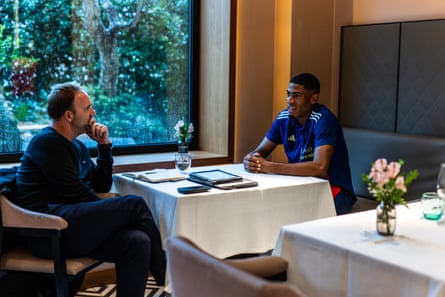
The team is too, which helps. “In the first few weeks, you really appreciate having so many Spanish speakers but I’m doing well with my English,” he says. “I’m taking a lot of classes. I understand almost everything and I get by quite well speaking. I spoke a bit from school and studied more the last few years, so I didn’t come as raw as I might have. The team talks are always in English. We’re in London and this is Arsenal. Anyway, with football language, it’s easier.”
As for the actual football, that’s different? A puff of the cheeks, a grin, and Mosquera says: “Mucho. Above all, it’s the pace of it: back and forth, more direct. I love it.”
Something in the culture has won him over too: the noise, the commitment, the way challenges are greeted like goals. Especially in this team, connecting them to the days of one-nil to the Arsenal, Arteta embracing the association with the success of the George Graham era, an identity so deep in the country’s conscience The Full Monty put it on screen. A smile sweeps across Mosquera’s face when he pictures that moment when you make a tackle and 60,000 people roar.
“It gives you that subidón, a high, a surge of self-esteem,” he says, beaming. “And that’s something the manager and staff tell us: to enjoy defending. Those typical actions where you make a tackle or a block: celebrate them. That gives life to the team, brings energy. That’s important and this group has it. Look at those moments when the entire team is running back. That’s a fundamental part of this season.”
Some season. Top of both tables, league and Champions League. Favourites to win a domestic title that has evaded them for 21 years, two months before Mosquera was born. Favourites to win a European title that has evaded them for ever. A relentlessness about them. Thirteen clean sheets.
“We’re very, very aware of what we have to do,” Mosquera says. “The goal is our house and no one is allowed in, no one is allowed near our area. Then be dangerous in attack. There’s a tactical element of course – the movements – but I think a lot of it is a mental thing, attitude. Our house: do not enter. Inside the dressing room, we believe in ourselves. We know what we’re capable of, we know where we can go.”

.png) 3 months ago
63
3 months ago
63

